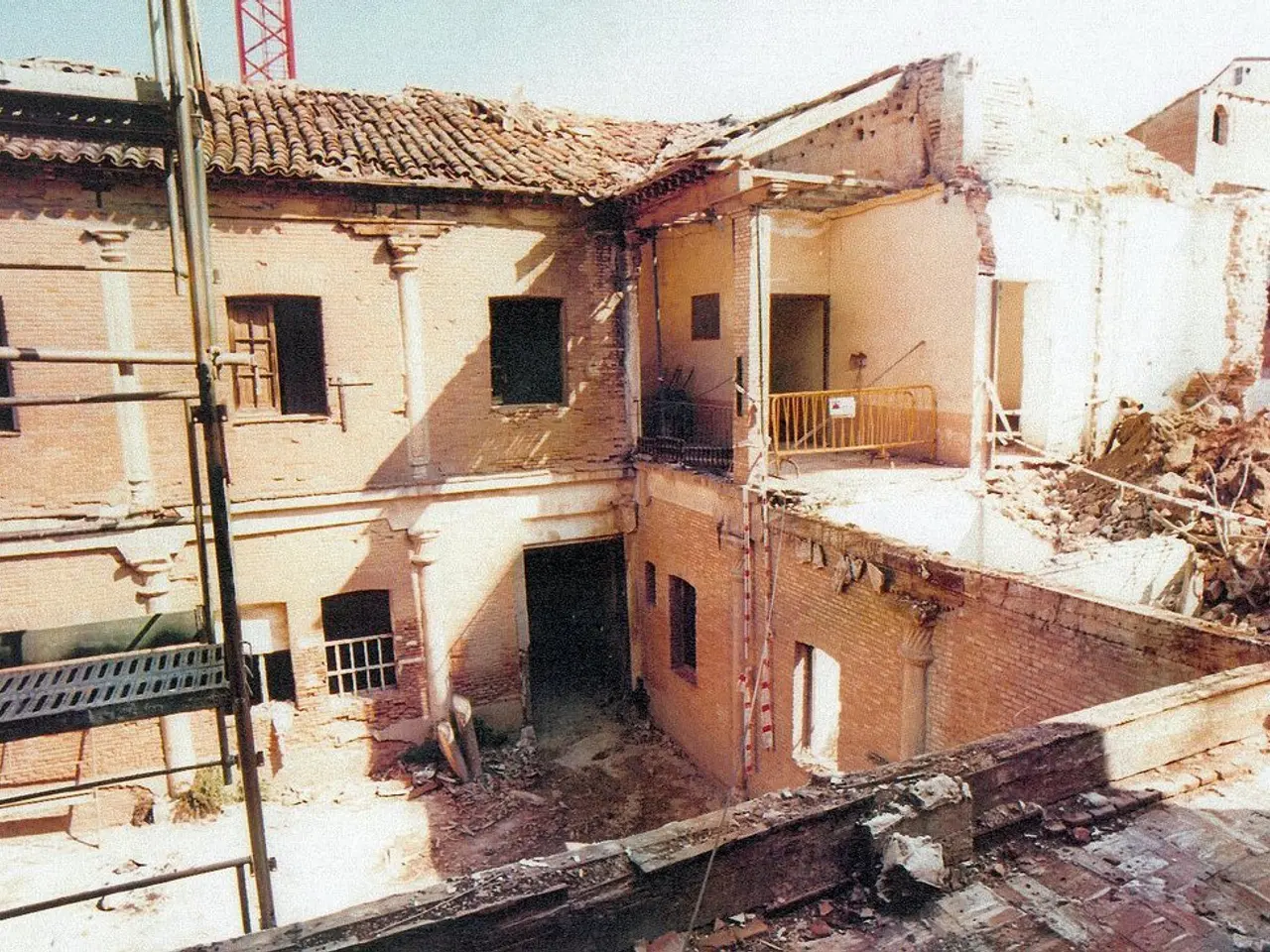Demolishing a Structure: 6 Justifiable Justifications Explained
Rebuilding? Sometimes Demolition is Key! Here are 6 Compelling Reasons to Knock Down a Building
Knocking down a building might seem like a drastic move, but for properties owners and developers, it can be a necessary step in certain situations. From safety concerns to urban renewal, there are numerous reasons why demolition may be the best option.
Dangerous Structures: Safety is Paramount
Buildings plagued with severe structural issues or showing alarming signs of decay pose significant risks to occupants and the surrounding area. These structures may have foundations faltering, extensive rotting, or compromised load-bearing elements, which could lead to collapse or other catastrophic failures. In such cases, demolition is often the most sensible choice to ensure public safety.
Beyond Repair: Natural Disasters and Damage
Natural disasters such as earthquakes, floods, or fires can leave buildings in shambles, often beyond repair. Repairing these structures may prove cost-prohibitive or technically unfeasible, making demolition the most viable solution for clearing the site and paving the way for redevelopment.
Urban Renewal and Modernization: Breathing New Life into Communities
Aging or outdated buildings may fail to meet modern standards of development, compelling property owners and developers to consider demolition as part of revitalization efforts. Clearing outdated structures makes room for innovative construction projects, which can range from residential apartments to commercial complexes, or a mix of both, ultimately revitalizing the community and contributing to economic development.
Property Expansion and Repurposing: Optimizing Land Use
Occasionally, demolishing a building is necessary to accommodate property expansion or a change in land use. Property owners may wish to consolidate multiple parcels or reconfigure existing structures to maximize efficiency. Additionally, adjusting to market demands or zoning regulations may necessitate alterations, such as demolishing underutilized structures and paving the way for new construction or adaptive reuse projects that adhere to contemporary needs and trends.
Environmental Cleanup: Protecting Public Health and the Environment
Contaminated buildings often need to be demolished as part of environmental remediation efforts to safeguard public health and prevent further environmental damage. These structures might be laden with hazardous materials like asbestos, lead paint, or mold. Special protocols and safety procedures must be followed during demolition and disposal to minimize the spread of hazardous materials, ensuring compliance with regulatory requirements.
Financial Considerations: A Balancing Act of Costs and Benefits
In some instances, demolishing a building can be the most economically sound choice. If the cost of repairing or renovating a building surpasses its potential value or utility, demolition may be the more financially sensible option. Factors to consider include property tax liabilities, maintenance costs, potential liability for accidents or injuries, and damage claims that might arise from natural disasters, accidents, or negligence.
Controlled Demolition: Safety, Efficiency, and Environmental Responsibility
In specific situations, demolition can be the most practical solution. At our website, we take a controlled and environmentally responsible approach to demolition projects. Our team of experts follows meticulous safety protocols and employs specialized equipment to carry out demolition with precision, adhering to all relevant regulations.
Whether you're ready to discuss your demolition project or need more information, rely on our website for professionalism, accuracy, and commitment to safety and environmental stewardship. Reach us at 407-663-5312 or email us at info@our website!
- In the context of urban renewal, outdated structures that fail to meet modern development standards can be demolished for innovative construction projects, leading to the revitalization of communities and contributing to economic development (urban renewal, modernization, redevelopment).
- For property owners seeking to optimize land use, demolishing underutilized structures or adjusting to market demands or zoning regulations may be necessary to accommodate property expansion, changes in land use, or adaptive reuse projects that adhere to contemporary needs and trends (property expansion, land use, reconfiguration, adaptive reuse).
- When faced with contaminated buildings, environmental remediation may require demolition to safeguard public health and prevent further environmental damage, with special protocols followed during demolition and disposal to minimize the spread of hazardous materials (environmental cleanup, hazardous materials, public health).
- Financial considerations might favor demolition over repair or renovation if the cost of repair surpasses a building's potential value or utility, with factors such as property tax liabilities, maintenance costs, potential liability for accidents, and damage claims playing a critical role in the decision-making process (financial considerations, cost-benefit analysis, property tax liabilities).
- Demolishing buildings can be the most responsible and efficient choice when special equipment and safety protocols are employed to ensure the precision, safety, and environmental compliance of the project (demolition, precision, safety, environmental stewardship).








